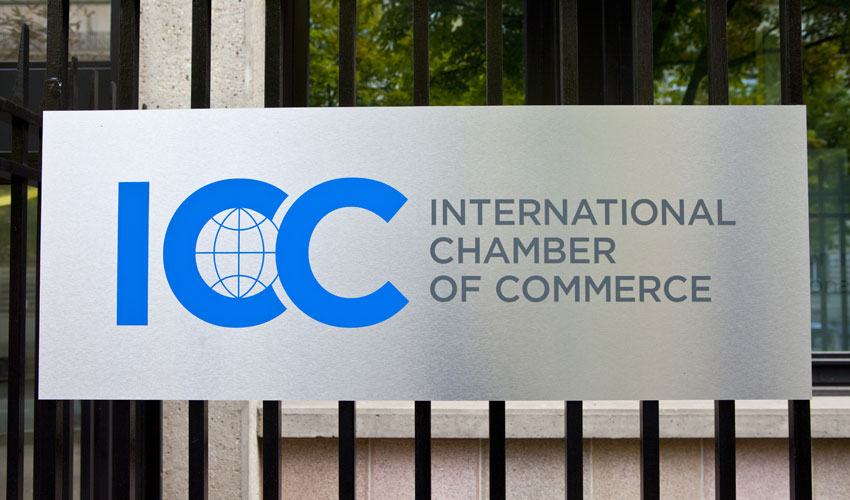Understand Your Rights. Solve Your Legal Problems


In a significant legal development, a Russian court has ordered Deutsche Bank to halt its ICC (International Chamber of Commerce) claim against a Gazprom joint venture over construction delays at a gas processing facility. This ruling comes despite a recent decision by the UK Supreme Court, which stated that the matter should be resolved through arbitration.
The UK Supreme Court clarified its reasoning behind a prior ruling that upheld the English Court of Appeal's decision in the case of UniCredit Bank GmbH v RusChemAlliance [2024] EWCA Civ 64. The case involved an anti-suit injunction (ASI) issued against RusChemAlliance LLC (RCA), a Russian company with ties to Gazprom, even though the arbitration was set to take place in Paris.
What is an Anti-Suit Injunction? An ASI is a court order that prevents a party from initiating or continuing legal proceedings in a different jurisdiction than that specified in the contract. Recognized under English law, an ASI aims to uphold the terms agreed upon by the parties involved. In this case, RCA's actions in Russia were found to violate an arbitration agreement governed by English law, which designated Paris as the seat of arbitration.
Related: What Does the Russian Sanctions Regime Mean for UK Litigation?
The backdrop to this legal dispute includes the impact of sanctions imposed due to the invasion of Ukraine. A contractor notified RCA that it could no longer fulfill its contracts and refused to return advance payments made by RCA. Notably, RCA itself is not sanctioned by the UK or EU. In response, RCA initiated legal proceedings against UniCredit in Russia, seeking to recover €448 million based on a 2020 Russian Federal Law that grants exclusive jurisdiction to Russian arbitration courts over sanctioned entities.
In reaction, UniCredit filed a claim in the English Commercial Court, arguing that RCA’s actions violated the arbitration agreement. Initially, the Court issued an interim injunction favoring UniCredit, but later declined to make it permanent. The Court ruled that French law, not English law, governed the arbitration agreement due to the Paris seat, concluding that an ASI should not be granted.
The Court of Appeal later overturned the Commercial Court's ruling, granting the ASI. It evaluated whether there was a “jurisdictional gateway” to serve RCA outside of England and Wales, given that RCA had no presence there. The Court referenced the Supreme Court's decision in Enka v Chubb [2020] UKSC 38, which established that in the absence of a specified governing law for the arbitration agreement, the law of the main contract would apply—even if the arbitration clause indicated a different seat.
The Court of Appeal concluded that French law did not specify that the law of the seat determined the law governing the arbitration agreement. Instead, it relied on the parties’ intent, which was not sufficient to override the presumption in favor of English law. The Court also affirmed previous decisions indicating that English courts could issue ASIs, even when the arbitration seat was abroad.
The UK Supreme Court upheld the ASI, preventing RCA from proceeding against UniCredit in Russia, and rejected RCA's appeal. The ruling affirmed that English courts have jurisdiction over ASIs when English law governs the contract and arbitration agreement, regardless of the law of the arbitration's location.
In delivering the judgment, Lord Leggatt emphasized that the primary focus should be on ensuring parties adhere to their contractual obligations. He asserted that English courts could prevent uncontractual conduct, even if the arbitration seat's courts would not intervene. Lord Leggatt dismissed concerns about comity, highlighting that French courts lack the authority to issue ASIs and could not adjudicate claims related to breaches of arbitration agreements.
Related: 22% of Law Firms Fail to Check Clients Against Sanctions
The Supreme Court's ruling marks a crucial milestone, confirming that English courts can issue ASIs in situations where arbitration is seated abroad, but the governing law is English. This decision empowers parties to counter legal actions initiated under newly enacted Russian legislation aimed at circumventing sanctions.
However, this legal framework may soon face challenges from the proposed Arbitration Bill currently in the UK Parliament. The Bill suggests that arbitration agreements would default to the law of the seat, which, if enacted, could limit English courts' ability to issue ASIs and other supportive remedies for arbitration agreements not based in the UK.
In summary, this case highlights the ongoing complexities and challenges in international arbitration, particularly in the context of evolving geopolitical tensions and legal frameworks.
You might like: A Journey Through International Arbitration - Stephen Jagusch KC


